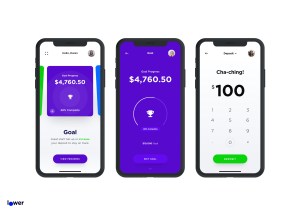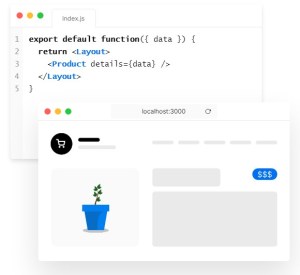An international coalition of consumer protection, digital and civil rights organizations and data protection experts has added its voice to growing calls for a ban on what’s been billed as “surveillance-based advertising”.
The objection is to a form of digital advertising that relies upon a massive apparatus of background data processing which sucks in information about individuals, as they browse and use services, to create profiles which are used to determine which ads to serve (via multi-participant processes like the high speed auctions known as real-time bidding).
The EU’s lead data protection supervisor previously called for a ban on targeted advertising which relies upon pervasive tracking — warning over a multitude of associated rights risks.
Last fall the EU parliament also urged tighter rules on behavioral ads.
Back in March, a US coalition of privacy, consumer, competition and civil rights groups also took collective aim at microtargeting. So pressure is growing on lawmakers on both sides of the Atlantic to tackle exploitative adtech as consensus builds over the damage associated with mass surveillance-based manipulation.
At the same time, momentum is clearly building for pro-privacy consumer tech and services — showing the rising store being placed by users and innovators on business models that respect people’s data.
The growing uptake of such services underlines how alternative, rights-respecting digital business models are not only possible (and accessible, with many freemium offerings) but increasingly popular.
In an open letter addressing EU and US policymakers, the international coalition — which is comprised of 55 organizations and more than 20 experts including groups like Privacy International, the Open Rights Group, the Center for Digital Democracy, the New Economics Foundation, Beuc, Edri and Fairplay — urges legislative action, calling for a ban on ads that rely on “systematic commercial surveillance” of Internet users in order to serve what Facebook founder Mark Zuckerberg likes, euphemistically, to refer to as ‘relevant ads’.
The problem with Zuckerberg’s (self-serving) framing is that, as the coalition points out, the vast majority of consumers don’t actually want to be spied upon to be served with these creepy ads.
Any claimed ‘relevance’ is irrelevant to consumers who experience ad-stalking as creepy and unpleasant. (And just imagine how the average Internet user would feel if they could peek behind the adtech curtain — and see the vast databases where people are profiled at scale so their attention can be sliced and diced for commercial interests and sold to the highest bidder).
The coalition points to a report examining consumer attitudes to surveillance-based advertising, prepared by one of the letter’s signatories (the Norwegian Consumer Council; NCC), which found that only one in ten people are positive about commercial actors collecting information about them online — and only one in five think ads based on personal information are okay.
A full third of respondents to the survey were “very negative” about microtargeted ads — while almost half think advertisers should not be able to target ads based on any form of personal information.
The report also highlights a sense of impotence among consumers when they go online, with six out of ten respondents feeling that they have no choice but to give up information about themselves.
That finding should be particularly concerning for EU policymakers as the bloc’s data protection framework is supposed to provide citizens with a suite of rights related to their personal data that should protect them against being strong-armed to hand over info — including stipulating that if a data controller intends to rely on user consent to process data then consent must be informed, specific and freely given; it can’t be stolen, strong-armed or sneaked through using dark patterns. (Although that remains all too often the case.)
Forced consent is not legal under EU law — yet, per the NCC’s European survey, a majority of respondents feel they have no choice but to be creeped on when they use the Internet.
That in turn points to an ongoing EU enforcement failure over major adtech-related complaints, scores of which have been filed in recent years under the General Data Protection Regulation (GDPR) — some of which are now over three years old (yet still haven’t resulted in any action against rule-breakers).
Over the past couple of years EU lawmakers have acknowledged problems with patchy GDPR enforcement — and it’s interesting to note that the Commission suggested some alternative enforcement structures in its recent digital regulation proposals, such as for oversight of very large online platforms in the Digital Services Act (DSA).
In the letter, the coalition suggests the DSA as the ideal legislative vehicle to contain a ban on surveillance-based ads.
Negotiations to shape a final proposal which EU institutions will need to vote on remain ongoing — but it’s possible the EU parliament could pick up the baton to push for a ban on surveillance ads. It has the power to amend the Commission’s legislative proposals and its approval is needed for draft laws to be adopted. So there’s plenty still to play for.
“In the US, we urge legislators to enact comprehensive privacy legislation,” the coalition adds.
The coalition is backing up its call for a ban on surveillance-based advertising with another report (also by the NCC) which lays out the case against microtargeting — summarizing the raft of concerns that have come to be attached to manipulative ads as awareness of the adtech industry’s vast, background people-profiling and data trading has grown.
Listed concerns not only focus on how privacy-stripping practices are horrible for individual consumers (enabling the manipulation, discrimination and exploitation of individuals and vulnerable groups) but also flag the damage to digital competition as a result of adtech platforms and data brokers intermediating and cannibalizing publishers’ revenues — eroding, for example, the ability of professional journalism to sustain itself and creating the conditions where ad fraud has been able to flourish.
Another contention is that the overall health of democratic societies is put at risk by surveillance-based advertising — as the apparatus and incentives fuel the amplification of misinformation and create security risks, and even national security risks. (Strong and independent journalism is also, of course, a core plank of a healthy democracy.)
“This harms consumers and businesses, and can undermine the cornerstones of democracy,” the coalition warns.
“Although we recognize that advertising is an important source of revenue for content creators and publishers online, this does not justify the massive commercial surveillance systems set up in attempts to ‘show the right ad to the right people’,” the letter goes on. “Other forms of advertising technologies exist, which do not depend on spying on consumers, and cases have shown that such alternative models can be implemented without significantly affecting revenue.
“There is no fair trade-off in the current surveillance-based advertising system. We encourage you to take a stand and consider a ban of surveillance-based advertising as part of the Digital Services Act in the EU, and the for U.S. to enact a long overdue federal privacy law.”
The letter is just the latest salvo against ‘toxic adtech’. And advertising giants like Facebook and Google have — for several years now — seen the pro-privacy writing on the wall.
Hence Facebook’s claimed ‘pivot to privacy‘; its plan to lock in its first party data advantage (by merging the infrastructure of different messaging products); and its keen interest in crypto.
It’s also why Google has been working on a stack of alternative adtech that it wants to replace third party tracking cookies. Although its proposed replacement — the so-called ‘Privacy Sandbox‘ — would still enable groups of Internet users to be opaquely clustered by its algorithms in ‘interest’ buckets for ad targeting purposes which still doesn’t look great for Internet users’ rights either. (And concerns have been raised on the competition front too.)
Where its ‘Sandbox’ proposal is concerned, Google may well be factoring in the possibility of legislation that outlaws — or, at least, more tightly controls — microtargeting. And it’s therefore trying to race ahead with developing alternative adtech that would have much the same targeting potency (maintaining its market power) but, by swapping out individuals for cohorts of web users, could potentially sidestep a ban on ‘microtargeting’ technicalities.
Legislators addressing this issue will therefore need to be smart in how they draft any laws intended to tackle the damage caused by surveillance-based advertising.
Certainly they will if they want to prevent the same old small- and large-scale manipulation abuses from being perpetuated.
The NCC’s report points to what it dubs as “good alternatives” for digital advertising models which don’t depend on the systematic surveillance of consumers to function. And which — it also argues — provide advertisers and publishers with “more oversight and control over where ads are displayed and which ads are being shown”.
The problem of ad fraud is certainly massively underreported. But, well, it’s instructive to recall how often Facebook has had to ‘fess up to problems with self reported ad metrics…
“It is possible to sell advertising space without basing it on intimate details about consumers. Solutions already exist to show ads in relevant contexts, or where consumers self-report what ads they want to see,” the NCC’s director of digital policy, Finn Myrstad, noted in a statement.
“A ban on surveillance-based advertising would also pave the way for a more transparent advertising marketplace, diminishing the need to share large parts of ad revenue with third parties such as data brokers. A level playing field would contribute to giving advertisers and content providers more control, and keep a larger share of the revenue.”






 80-90% of people online don't want to be spied on for 'more relevant ads,' finds
80-90% of people online don't want to be spied on for 'more relevant ads,' finds